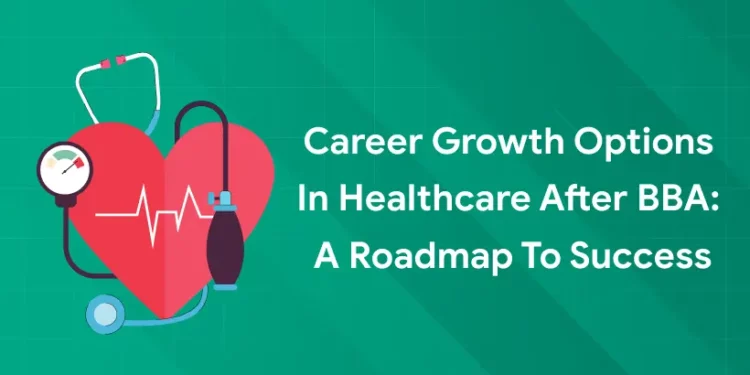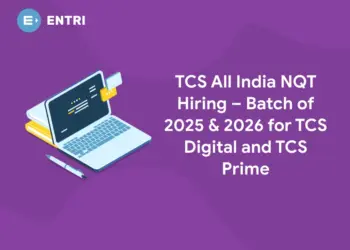Table of Contents
Key Takeaways:
-
A BBA degree equips you with essential business and managerial skills tailored for the health sector.
-
The healthcare industry’s rapid growth opens diverse roles beyond clinical care, including administration, finance, operations, and consulting.
-
Strategic upskilling, specialization, and practical experience are key to career advancement.
-
Emerging fields like health analytics, digital health, and healthcare consulting offer dynamic growth opportunities.
-
Building strong soft skills and professional networks enhances leadership potential and job prospects.
Introduction: Unlocking Career Growth with a BBA in Healthcare
Graduating with a Bachelor of Business Administration (BBA) in Healthcare is a stepping stone into a rewarding and growing industry. This qualification blends core business knowledge with healthcare-specific insights, preparing you to manage and lead in diverse healthcare environments. Yet, many graduates ask: “What next? How can I shape a successful career in healthcare management?”
Healthcare today transcends traditional boundaries—it’s about blending business acumen with compassionate service, technological innovation, and regulatory compliance. Your BBA gives you a versatile toolkit to navigate this complex landscape. With continuous learning, honing leadership skills, and strategically choosing career paths, you can achieve significant growth and create a meaningful impact in healthcare.
Healthcare Sector Growth: A Landscape Ripe with Opportunity
India’s healthcare market is expected to exceed $638 billion by 2025, driven by urbanization, government initiatives, private sector investments, and technology adoption. This expansion is accelerating demand not just for clinical professionals but equally for skilled healthcare administrators, consultants, analysts, and operational leaders.
Healthcare organizations seek proficient managers familiar with finance, HR, policy, and technology who can optimize resources and improve patient outcomes. With the rise of digital health, telemedicine, and analytics, the management workforce requires agility and multidisciplinary knowledge—making your BBA specifically valuable.
Step-by-Step Roadmap for Career Growth After BBA in Healthcare
1: What is the primary role of a hospital administrator?
Step 1: Gain a Strong Foundation through Your BBA Degree
-
Ensure you understand core healthcare business topics like hospital operations, healthcare laws, medical terminology, and finance.
-
Maximize internships, live projects, and case studies offered during your degree to gain practical exposure.
Step 2: Pursue Specialized Certifications and Short-Term Courses
-
To bridge the gap between business and healthcare, enroll in domain-specific certifications such as hospital administration, healthcare analytics, medical coding, or healthcare IT.
-
Consider the comprehensive Hospital Administration Course by Entri for practical learning and industry relevance.
Step 3: Develop Essential Soft Skills for Healthcare Management
-
Cultivate communication, leadership, critical thinking, and problem-solving abilities. These are highly valued in healthcare environments for managing multidisciplinary teams and complex scenarios.
Also read 16 Types of Healthcare Software in 2025
Step 4: Seek Entry-Level Roles or Internships in the Healthcare Sector
-
Look for positions such as hospital management trainee, operations assistant, healthcare analyst, or medical billing coordinator to gain hands-on experience.
-
Volunteer or participate in health campaigns to diversify your exposure.
Step 5: Build Your Professional Network
-
Join healthcare professional groups and forums, attend conferences, and connect with industry mentors. Strong networking helps uncover job leads and mentorship opportunities.
Step 6: Plan for Further Education to Accelerate Growth
-
Many professionals pursue master’s degrees like MBA in Healthcare Management, MHA (Master of Hospital Administration), or specialized diplomas to advance into senior roles.
-
Continuous learning keeps you updated with evolving healthcare technologies and regulatory changes.
Step 7: Aim for Mid to Senior-Level Positions
-
With experience, target roles like department manager, health services manager, project leader, or consultant where you can influence healthcare operations and strategy.
Also read: Hospital Administration Career Opportunities Abroad
Hospital Administration Course with Assured Career Growth
Hospital Administration Course by Entri App: Master essential healthcare management skills, gain certification, and secure top roles in leading hospitals
Join Now!Career Growth Paths for BBA in Healthcare Graduates
| Career Level | Typical Roles | Key Responsibilities and Skills |
|---|---|---|
| Entry-Level | Hospital Admin Assistant, Medical Office Exec, Health Records Coordinator | Operational support, patient coordination, data handling |
| Mid-Level | Department Manager, Clinical Operations Officer, Health Information Manager | Team management, workflow optimization, compliance oversight |
| Senior-Level | Healthcare Consultant, Program Manager, Hospital Operations Manager | Strategic planning, policy implementation, quality assurance |
| Leadership Roles | Director of Healthcare Services, Chief Operations Officer, Healthcare Project Director | Organizational leadership, resource allocation, executive decision-making |
The Importance of Hospital Administration in Healthcare
Hospital administration is the backbone of any healthcare facility, ensuring that hospitals and clinics operate smoothly, efficiently, and in compliance with regulations. For graduates with a business background, understanding hospital administration is critical because it blends management principles with healthcare-specific operations to enhance patient outcomes.
Why is Hospital Administration Vital?
-
Ensures Operational Efficiency: Hospital administrators coordinate complex workflows across departments such as admissions, billing, nursing, clinical services, and support functions. Their role is to streamline processes, reduce wait times, and allocate resources optimally.
-
Maintains Financial Health: They manage budgeting, procurement, and financial planning to sustain the hospital’s operations without compromising care quality. Effective financial management enables hospitals to invest in advanced equipment, expand services, and improve patient safety.
-
Ensures Regulatory Compliance: Administrators safeguard the hospital’s operations by adhering to healthcare laws, safety standards, and ethical guidelines, minimizing risks, and protecting patients and staff.
-
Enhances Patient Experience: By coordinating administrative and medical staff, hospital administrators help ensure that patients receive timely, coordinated, and compassionate care. Improved operational management leads to higher patient satisfaction and better health outcomes.
-
Drives Innovation and Adaptability: In an evolving healthcare landscape, administrators lead technology adoption, quality improvement initiatives, and strategic planning to meet changing demands and integrate new care models.
Common Challenges Faced by Non-Medical Graduates Entering the Healthcare Sector
Transitioning into the healthcare sector with a non-medical BBA degree offers exciting opportunities but is not without challenges. Understanding these barriers is essential to prepare strategically and navigate this shift successfully. Here are some common difficulties and practical ways to overcome them:
1. Knowledge and Terminology Gap
Healthcare uses specialized medical and administrative terminology, which may be unfamiliar to non-medical graduates. This gap can lead to initial confusion in understanding protocols, documentation, and communication within healthcare settings.
Solution: Enroll in sector-specific courses like Entri’s Hospital Administration Course that teach healthcare vocabulary, workflows, and compliance requirements.
2. Lack of Clinical Exposure
Non-medical graduates often have limited or no hands-on clinical experience, which is valued in many healthcare roles. This lack can affect confidence and understanding of patient-centered environments.
Solution: Gain internships or volunteer in healthcare facilities to develop practical insights and contextual knowledge.
3. Perceived Career Uncertainty
The diversity and complexity of the healthcare sector sometimes lead to uncertainty about which roles align best with non-medical backgrounds. Misconceptions about job availability or suitability might discourage some from pursuing healthcare careers.
Solution: Conduct thorough research, seek guidance from industry professionals, and engage in career counseling to build clarity and confidence.
4. Competition with Specialized Healthcare Graduates
Graduates of medical, nursing, or allied health programs have directly relevant training, presenting stiff competition for healthcare positions.
Solution: Differentiate yourself through certifications, specialized training, and highlighting transferable skills such as analytical thinking, data management, and problem-solving.
5. Financial and Time Constraints for Additional Training
Quality healthcare certifications or courses can require investment of time and money, which may challenge recent graduates.
Solution: Explore scholarships, flexible online courses, and government-sponsored skill development programs. Entri offers modular, accessible programs tailored for working learners and fresh graduates.
6. Adapting to Healthcare Work Culture
Healthcare environments are highly regulated, fast-paced, and emotionally demanding, which can be overwhelming for those new to the sector.
Solution: Develop soft skills such as communication, empathy, teamwork, and stress management through workshops, mentoring, and practical exposure.
7. Regulatory and Licensing Requirements
Certain healthcare jobs require clearances, registrations, or licenses, which may not be immediately accessible to non-medical graduates.
Solution: Understand regulatory frameworks applicable to your chosen area, plan for exams or certification processes, and use recognized courses to gain eligibility.
Despite these challenges, many non-medical graduates successfully carve out impactful healthcare careers. With strategic preparation, ongoing learning, and gaining practical experience, you can overcome obstacles and thrive in this rewarding field.
Hospital Administration Course with Assured Career Growth
Hospital Administration Course by Entri App: Master essential healthcare management skills, gain certification, and secure top roles in leading hospitals
Join Now!Entri’s Hospital Administration Course in Kerala
Entri’s Hospital Administration Course in Kerala is an expertly designed 8-month diploma program tailored for graduates aspiring to enter healthcare management.
Course Highlights:
-
Intensive Classroom Training: 2 months of focused lectures on hospital management, clinical workflow, healthcare policies, and medical terminology.
-
On-the-Job Training: 3 months of real-world internship experience in reputed hospitals, strengthening hands-on skills.
-
Revision & Model Exams: 1 month dedicated to consolidating knowledge and assessment readiness.
-
Comprehensive Curriculum: Includes clinical management, healthcare IT software training, financial management, quality assurance, and patient care fundamentals.
-
Soft Skills Development: English language enhancement, interviewing skills, and professional communication.
-
Expert Faculty: Training by healthcare professionals and experienced administrators.
-
Placement Assistance: Dedicated cell facilitating job placements and career guidance.
This course is ideal for BBA graduates wishing to enhance healthcare management expertise and gain employment in hospital administration roles. It bridges business/operational knowledge and the healthcare sector understanding effectively.
Learn more about Entri’s Hospital Administration Course.
People also read: Entri Hospital Administration Course – FAQs
Conclusion
Entering the Healthcare sector with a BBA marks the beginning of an exciting journey in a vibrant and expanding industry. The healthcare sector’s projected exponential growth, driven by technological innovation, increased healthcare access, and policy focus, means rich opportunities across management, finance, operations, and consulting. To capitalize on this growth, continuous learning, industry exposure, and leadership development are vital.
Programs like Entri’s Hospital Administration Course provide a pathway to acquire specialized skills and practical experience, positioning you competitively for leadership roles. With the right education and commitment, you can navigate the complex healthcare landscape, drive operational excellence, and contribute meaningfully to better health outcomes.
Hospital Administration Course with Assured Career Growth
Hospital Administration Course by Entri App: Master essential healthcare management skills, gain certification, and secure top roles in leading hospitals
Join Now!Frequently Asked Questions
What are the top career options for BBA Healthcare graduates?
Career options include hospital administration, healthcare finance, operations management, healthcare consulting, and health analytics.
How can I accelerate my career growth in healthcare after BBA?
Pursue relevant certifications or postgraduate studies, gain industry experience, develop soft skills, and engage in professional networking.
Is a BBA in Healthcare sufficient to start my career, or should I pursue an MBA?
While a BBA provides foundational skills, many professionals enhance their prospects with an MBA or specialized certifications in healthcare management.
Can non-clinical degrees like BBA lead to leadership roles in healthcare?
Yes, many healthcare leaders come from business and management backgrounds, especially with sector-specific knowledge and experience.
How does the Entri Hospital Administration Course help in career advancement?
The course offers hands-on training, industry insights, and placement support, preparing graduates for managerial roles in the healthcare sector.
















